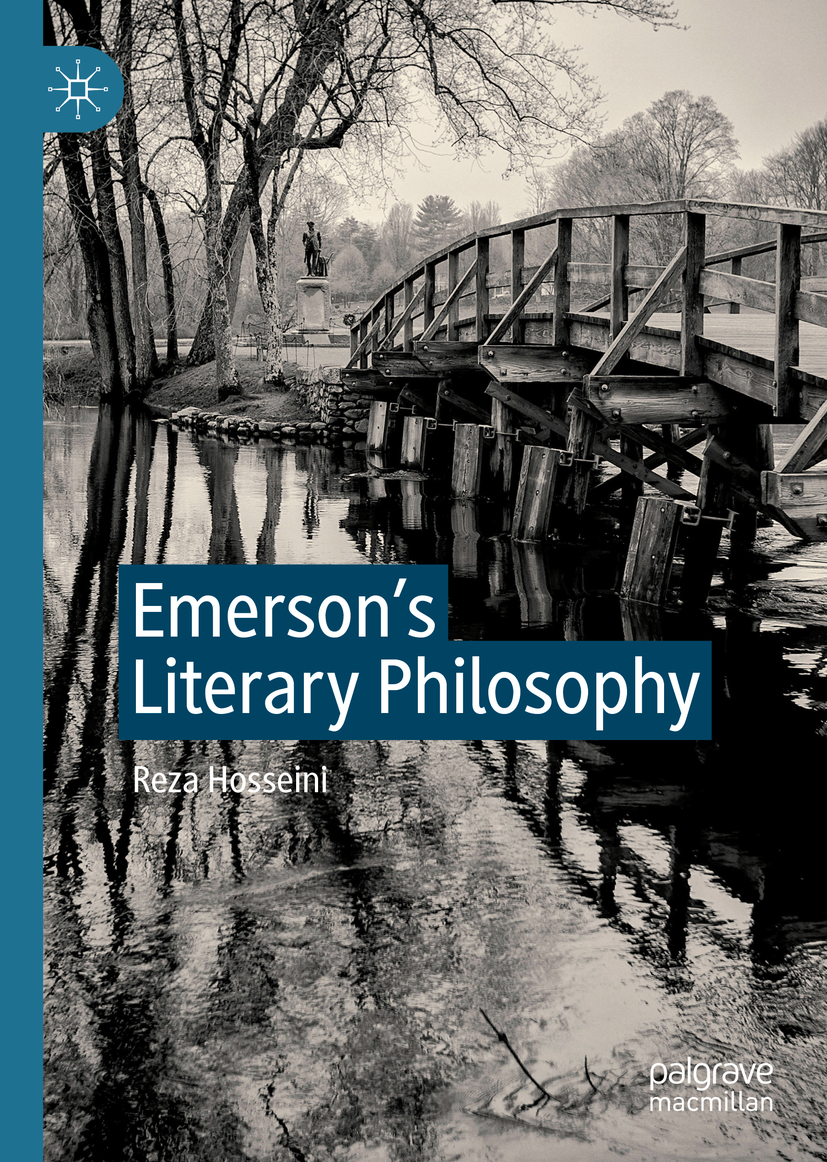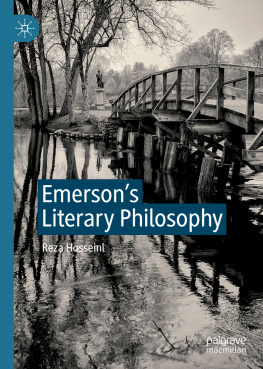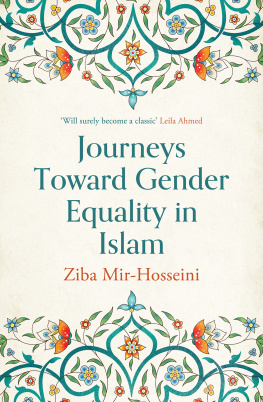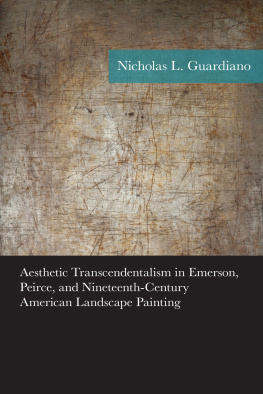Reza Hosseini - Emerson’s Literary Philosophy
Here you can read online Reza Hosseini - Emerson’s Literary Philosophy full text of the book (entire story) in english for free. Download pdf and epub, get meaning, cover and reviews about this ebook. publisher: Springer International Publishing, genre: Science. Description of the work, (preface) as well as reviews are available. Best literature library LitArk.com created for fans of good reading and offers a wide selection of genres:
Romance novel
Science fiction
Adventure
Detective
Science
History
Home and family
Prose
Art
Politics
Computer
Non-fiction
Religion
Business
Children
Humor
Choose a favorite category and find really read worthwhile books. Enjoy immersion in the world of imagination, feel the emotions of the characters or learn something new for yourself, make an fascinating discovery.
- Book:Emerson’s Literary Philosophy
- Author:
- Publisher:Springer International Publishing
- Genre:
- Rating:3 / 5
- Favourites:Add to favourites
- Your mark:
- 60
- 1
- 2
- 3
- 4
- 5
Emerson’s Literary Philosophy: summary, description and annotation
We offer to read an annotation, description, summary or preface (depends on what the author of the book "Emerson’s Literary Philosophy" wrote himself). If you haven't found the necessary information about the book — write in the comments, we will try to find it.
Emerson’s Literary Philosophy — read online for free the complete book (whole text) full work
Below is the text of the book, divided by pages. System saving the place of the last page read, allows you to conveniently read the book "Emerson’s Literary Philosophy" online for free, without having to search again every time where you left off. Put a bookmark, and you can go to the page where you finished reading at any time.
Font size:
Interval:
Bookmark:


Cover illustration: The Old Manse in Concord, MA - Norman Eggert / Alamy Stock Photo
This Palgrave Macmillan imprint is published by the registered company Springer Nature Switzerland AG.
The registered company address is: Gewerbestrasse 11, 6330 Cham, Switzerland
Positioning Emerson within both ancient and contemporary philosophical traditions, this study goes far in revealing the great nineteenth-century American thinkers significance in his own time and often refreshingly in his own words. From his Platonic and even Persian underpinnings to his relevance to analytic philosophy, his ideas as well as the rhetoric used to express them demonstrate how and why his way of thinking about the world in both theory and practice continues to warrant such close attention.
Roger Sedarat, Queens College, City University of New York, Author of Emerson in Iran: The American Appropriation of Persian Poetry
Reza Hosseini offers a formidable yet intimately rendered report on the relationship between philosophy and literature as expressed by Ralph Waldo Emerson. With a keen perception of the ancient Greek and medieval Persian influences on our writerespecially attributes of moral fervor and poetic intensityHosseini draws us into illuminating conversations with a bountiful range of contemporary scholarship: from Pierre Hadot and Alasdair MacIntyre on philosophy as a way of life to Thomas Nagel and George Kateb on the secular and the religious, and, as interpreted by Martha Nussbaum and Stanley Cavell , literatures claims to philosophy, and vice versa. In addition to a surprise and satisfying analysis of Raymond Carvers sense of ordinary language as it intersects with Emersons prose, Hosseinis engagement with the Persian literary humanists ( Rumi , Hafiz , and Saadi) makes for a memorable transnational appreciation of Emersons capacious contributions to philosophyhow it is written and how it is lived.
David LaRocca, Cornell University, Author of On Emerson and Emersons English Traits and the Natural History of Metaphor and editor of Estimating Emerson: An Anthology of Criticism from Carlyle to Cavell
For Ellia
Ralph Waldo Emerson was at his best when he was talking about the beginnings: the beginning of the world, the beginning of virtue, the beginning of wonder, and the formation of beautiful sentiments. He even wrote of the beginning of despair when he found himself in a series of which we do not know the extremes. He wanted his lectures and writings to be the beginning of something in his audience and his readers, and for a while he wrote about nothing but the beginnings. How do we see the world?, as a commentator has noted, was the question of his time, and Emerson wanted to know how do we see the world anew? This book is a collection of essays about Emersons thoughts on the beginnings of philosophy, which was the same to him as seeing the world anew. As such, seeing was an achievement to him. And, in response to the cynic, he didnt think seeing was overrated because he didnt think philosophy was overrated. This way of seeing, of course, has far-reaching implications and in what follows I have tried to discuss ones that I found more pressing.
I have been thinking about the central ideas of this book over the last five years, during which I have benefited from the feedback and support of many friends and colleagues and anonymous reviewers of different journals who influenced the orientation of my project as a whole.
Hosseini, Reza. 2018. Emerson and the Pale Scholar. Dialogue: Canadian Philosophical Review 57: 115135. Cambridge University Press.
Hosseini, Reza. 2019a. Religious Gestures and Secular Strengths: Emerson, Kateb, and Nagel on the Religious Temperament. Religious Studies https://doi.org/10.1017/S0034412519000453 . Cambridge University Press.
Hosseini, Reza. 2019b. Emerson and the Question of Style. Philosophy and Literature 43: 369383. Johns Hopkins University Press.
At the moment, I can think of two more debts to acknowledge here. Late in the process of writing this work I came to realize that the Emersonian project is an extension of the Socratic project, mainly thanks to thoughtful works of Dylan Futter on Socrates search for wisdom. Likewise, F. O. Matthiessens classic, American Renaissance, set up an example of literary criticism for me, free from pseudo-profound theorizations and marked by its lively prose and shrewd observations about a generation whose unreserved appetite for life was their common ground.
Estimating Emerson: An Anthology of Criticism from Carlyle to Cavell, 2013
EL,Ralph Waldo Emerson: Essays and Lectures, 1983
JMN,The Journals and Miscellaneous Notebooks of Ralph Waldo Emerson, 16 Vols. 19601982
W,The Works of Ralph Waldo Emerson, 12 Vols. 18831893.
Font size:
Interval:
Bookmark:
Similar books «Emerson’s Literary Philosophy»
Look at similar books to Emerson’s Literary Philosophy. We have selected literature similar in name and meaning in the hope of providing readers with more options to find new, interesting, not yet read works.
Discussion, reviews of the book Emerson’s Literary Philosophy and just readers' own opinions. Leave your comments, write what you think about the work, its meaning or the main characters. Specify what exactly you liked and what you didn't like, and why you think so.










